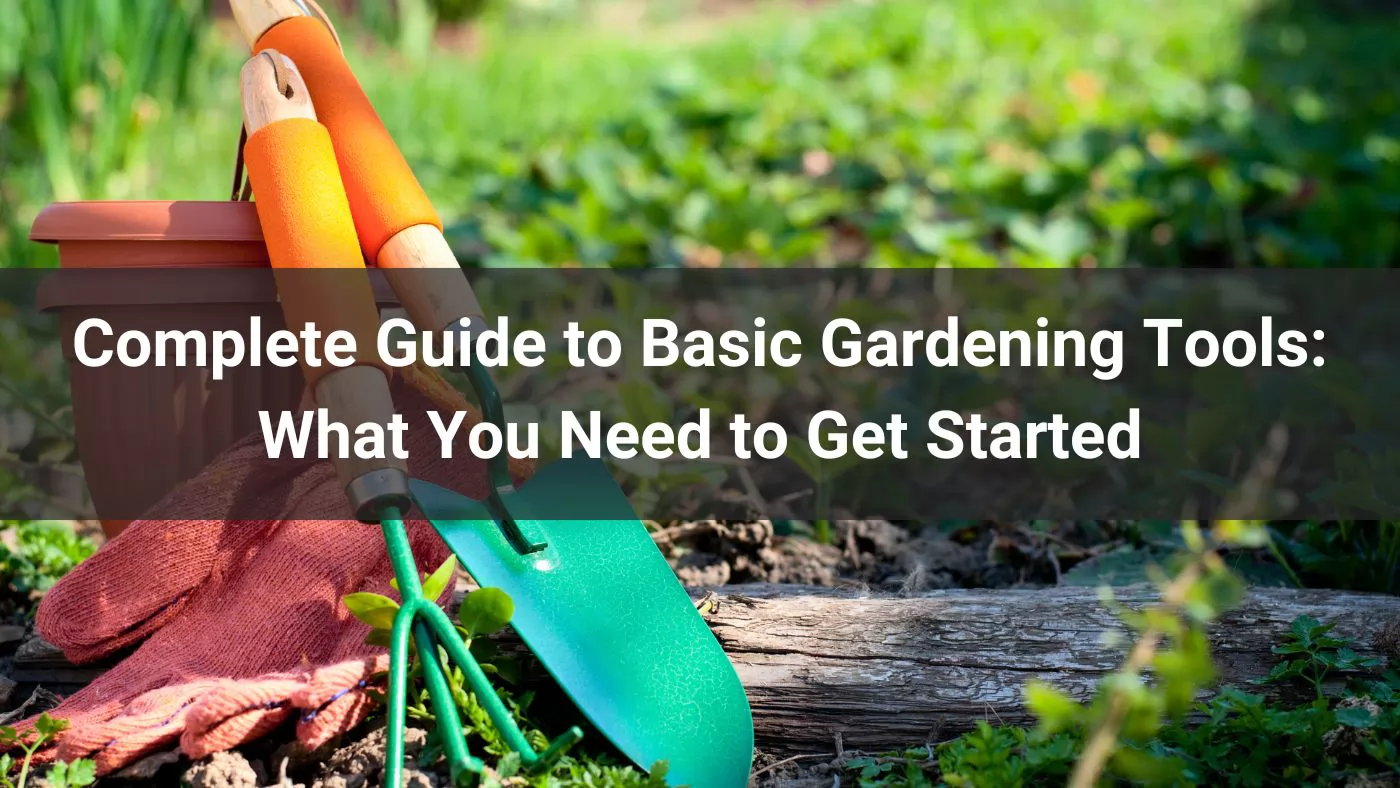
Gardening is a fulfilling hobby that connects you with nature, yields fresh produce or vibrant blooms, and promotes well-being. For beginners, however, the array of tools available can be daunting. Do you need a rod tying machine or a simple trowel? The good news is that a small, well-chosen set of basic gardening tools can get you started without breaking the bank. This comprehensive guide covers essential tools for planting, weeding, pruning, and maintenance, while integrating specialized tools like vine tying tools, automatic tying machines, and seed starting trays for specific gardening needs. We'll explore what to buy, how to use each tool, and maintenance tips to keep them in top shape. By the end, you'll have a clear plan for building a beginner-friendly toolkit.
Whether you're cultivating tomatoes with reusable tomato clips, supporting climbers with a coco coir moss pole, or starting seeds in 72 cell seed starting trays, this guide has you covered. Let’s get growing!
Quality tools save time and effort. Opt for durable materials like stainless steel or ergonomic designs to avoid flimsy tools that rust or snap. A beginner’s toolkit can cost $100–$200, covering essentials like pruning shears for plants and seedling trays. As you advance, you might add specialized equipment like a vineyard tying machine or automatic knot tying machine for larger projects. Prioritize comfort and versatility to match your garden’s scale, whether it’s a balcony herb patch or a backyard vegetable plot.
Below is a curated list of 10 essential tools for beginners, with their uses, tips, and why they’re vital. We’ve also woven in specialized tools like tape tying machines and coco coir poles where relevant.
Why you need them: Protect hands from thorns, dirt, blisters, and chemicals. Gloves improve grip when using tools like a binding wire tying tool or hand tying machine for securing plants. Best for: Weeding, pruning roses with rose pruning scissors, or handling grass mulch in garden tasks. Tip: Choose breathable, fitted gloves with long cuffs. Wash after each use to prevent soil-borne diseases, especially when using cardboard egg carton seed starters. Pro pick: Leather gloves for heavy tasks like handling bamboo fence clips. Cost: $10–$20.

Why you need it: Ideal for digging small holes, transplanting seedlings from propagation starter seedling trays, or planting in egg tray planting setups. It’s a must for precise tasks. Best for: Planting bulbs, herbs, or planting onion seeds in trays. Tip: Select a stainless steel trowel with depth markings. Pair with a seedling tray use for efficient transplanting. Pro pick: Ergonomic trowel for wrist comfort. Cost: $8–$15.
Why you need them: Trim branches, deadhead flowers, or harvest produce cleanly to prevent plant damage. Pruning shears for bushes, pruning shears for roses, and pruning shears indoor plants are key for precision. Best for: Shaping campanula carpatica deep blue clips plants or maintaining Illinois bundle flower. Tip: Sharpen blades yearly and oil pivots. Use ratchet shears for weaker grips or when cutting thicker stems for plant wall climbing hooks. Pro pick: Bypass-style rose bush pruning shears for clean cuts. Cost: $15–$30.
Why you need it: Aerates soil, turns compost, and lifts root crops like potatoes. It’s gentler than a shovel for soil structure. Best for: Preparing beds for starting seeds in trays outside or mixing in grass mulch in garden. Tip: Choose square tines for durability. Use for tray nursery for rice bed prep. Pro pick: Steel fork for rust resistance. Cost: $20–$40.
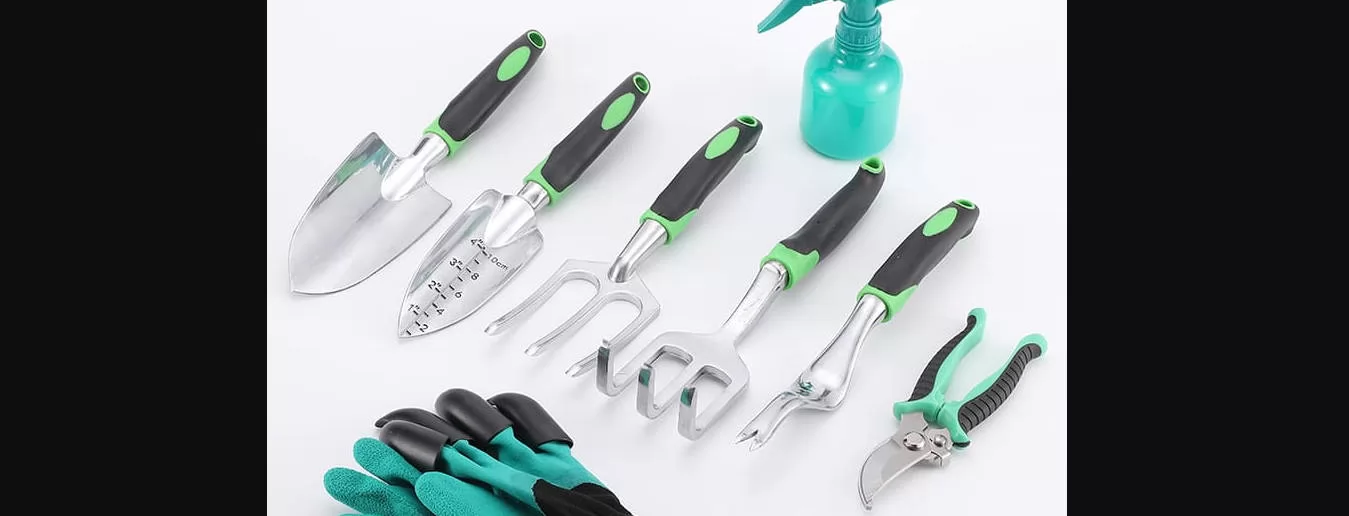
Why you need it: Digs large holes for trees, moves soil, or edges beds. A round-point shovel suits general digging; a spade for cutting turf. Best for: Installing plants or prepping soil for 200 cell seedling starter trays. Tip: Opt for ash or fiberglass handles. Avoid over-digging to preserve soil health. Pro pick: Drain spade for clay soils. Cost: $20–$50.
Why you need it: Removes weeds, breaks soil crust, and creates furrows for planting tomato seeds in trays. It’s ideal for larger plots. Best for: Weeding veggie gardens or maintaining mulched areas. Tip: Use an oscillating hoe for ease. Keep blades sharp for clean cuts. Pro pick: Long-handled hoe for back-friendly work. Cost: $15–$30.
Why you need it: Levels soil, spreads grass mulch in garden, and gathers debris. A scalebeard lawn leveling rake is perfect for uneven lawns. Best for: Prepping seedbeds or clearing leaves around coco pole plants. Tip: Use the flat side to smooth; tines for raking. Store flat to prevent warping. Pro pick: Metal tines for durability. Cost: $15–$25.
Why you need it: Delivers precise water to watering seedlings in trays or broad irrigation for beds. A can is ideal for germinating seeds in humidity dome. Best for: Raising seedlings in trays or watering monstera coco coir setups. Tip: Use a rose nozzle for gentle watering. Water at the base in the morning to reduce evaporation. Pro pick: Galvanized can with a fine spout. Cost: $10–$30.
Why you need it: Hauls soil, compost, or tools efficiently. Useful for moving heavy duty 6 cell seed starting trays or mulch. Best for: Transporting materials for tray nursery for rice or large beds. Tip: Choose pneumatic tires for rough terrain and two wheels for stability. Pro pick: Polyethylene tub for rust-proofing. Cost: $40–$80.
Why you need them: 72 cell seed starting trays, 200 cell seedling starter trays, or cardboard egg carton seed starters kickstart seeds indoors. Supports like tomato clips bulk or Amazon plant support clips stabilize climbers. Best for: Starting onion seeds in trays, planting tomato seeds in trays, or growing campanula clips deep blue. Tip: Practice sterilizing seed trays, disinfecting seed trays, or cleaning seed starting trays with a 1:10 bleach solution. Use germinating seeds in humidity dome for better results. Pro pick: Reusable trays with drainage holes. Cost: $5–$20 per set.
For gardeners growing climbers or vines, tying tools ensure plants stay secure and healthy. Here’s a breakdown of relevant tools from the provided keywords, organized by use:
Best for: Supporting climbers like monstera coco coir or securing vines in vineyards. Tip: Choose biodegradable twine for eco-friendly tying. For small gardens, stick to plant wall climbing hooks or bamboo fence clips over machines. Cost: $15–$200, depending on manual vs. automatic tying machine.
Best for: Vertical gardening with monstera coco coir or pothos. Tip: Secure poles with Amazon plant support clips for extra stability.
Keep your tools—whether a tachit machine or a scalebeard lawn leveling rake—in top condition:
With these basic gardening tools, from secateurs and shears to vine tying machines, you’re equipped to start a thriving garden. Whether you’re starting seeds in humidity dome, supporting plants with a coco coir pole DIY, or bundling harvests with a string knot tying machine, this toolkit grows with you. For specific needs—like tray nursery for rice or auto baler for large-scale tasks—expand gradually. Happy gardening! Let me know your garden type for more tailored advice.




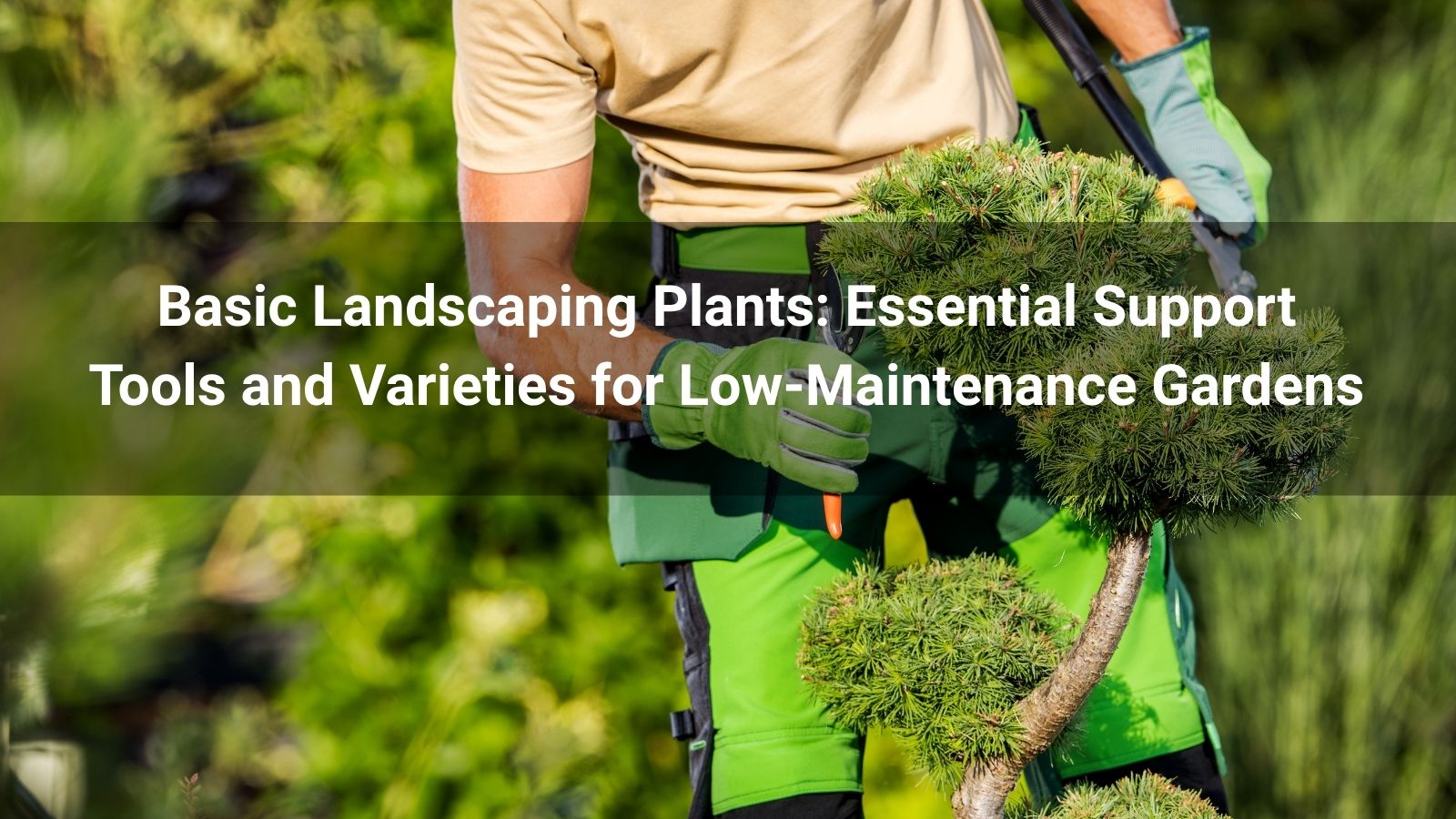

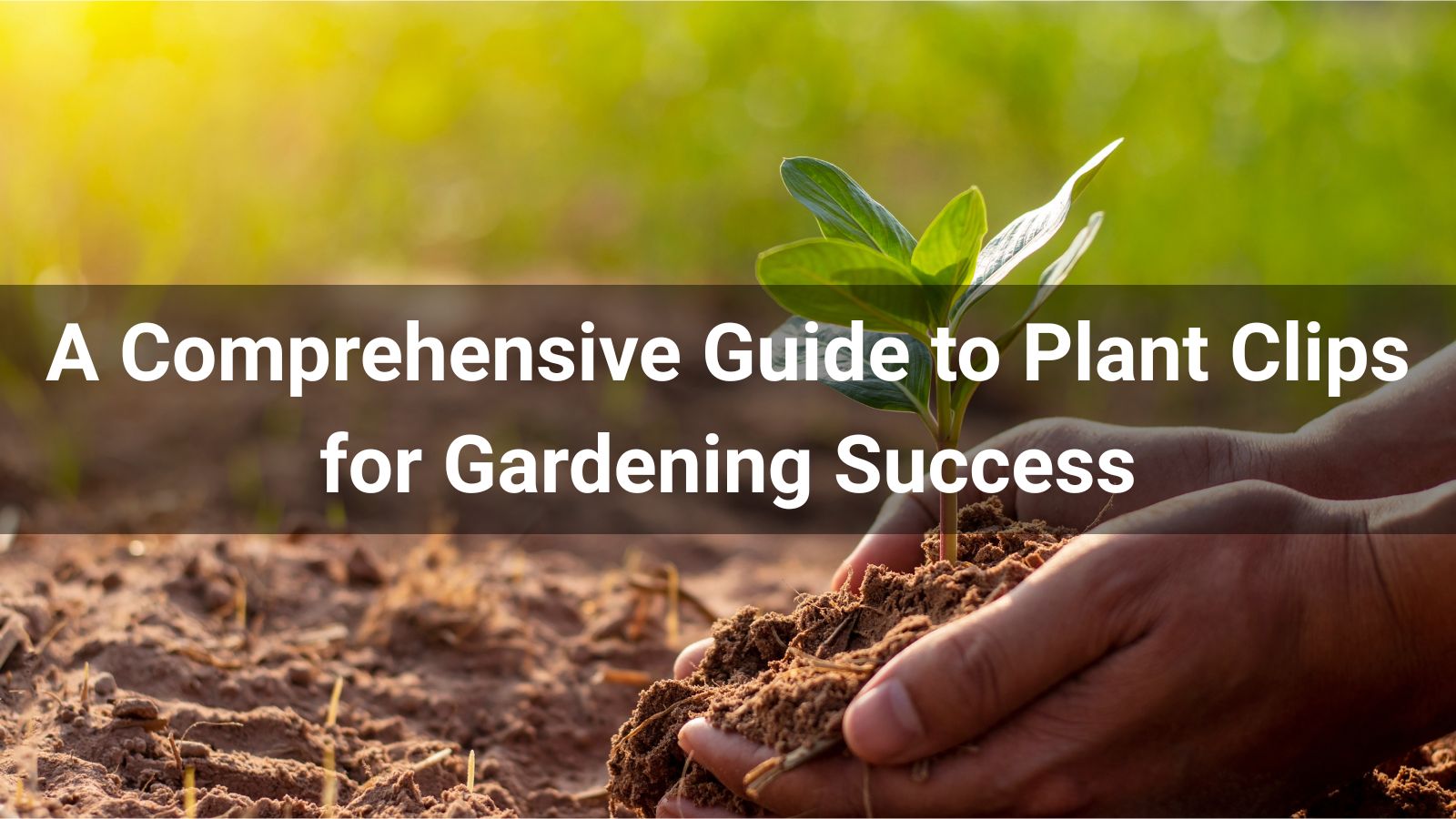

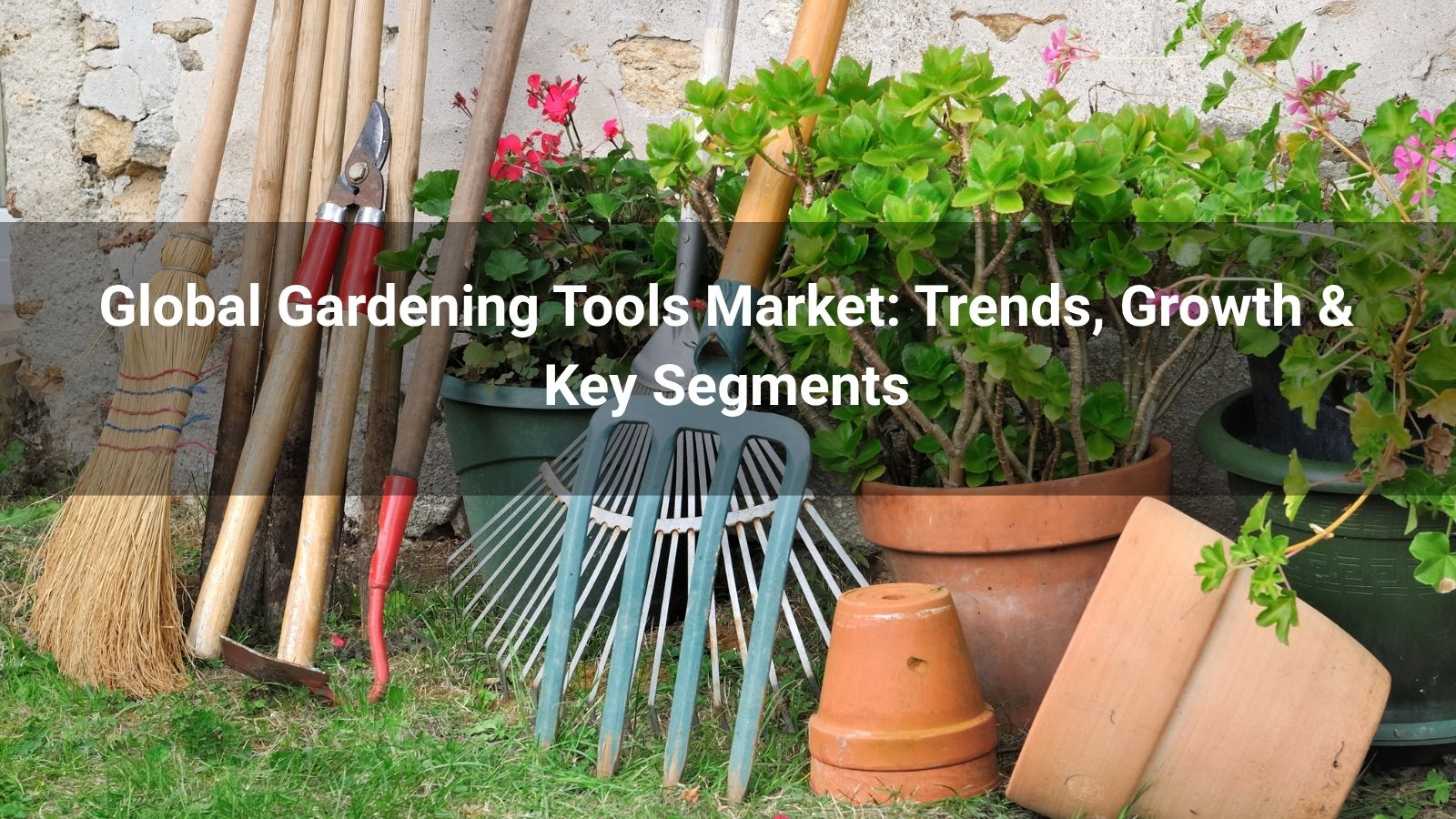

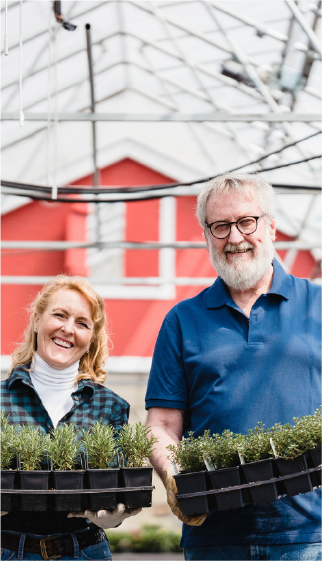
We use cookies to make the website work, to provide advanced features, social media and traffic analysis, and we use analytics and third-party advertising cookies. If you choose to click "Deny All", you will retain the default setting of not allowing the use of cookies or other tracking tools other than technical tools.



